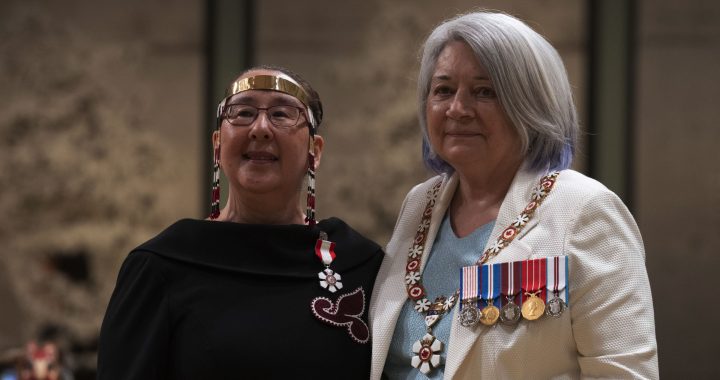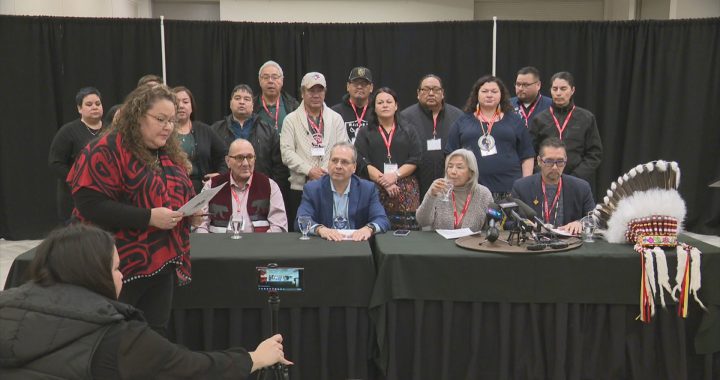The online 2020 Juno Awards special began with a few timely acknowledgements around systemic racism and a history of a lack of diversity in the Canadian music scene.
As dialogue around systemic racism continues to be at the forefront of conversations, the Junos recognized its own history of not offering space for Black and Indigenous artists.
Co-host Odario Williams, who also fronts the Canadian hip hop group Grand Analog, provided some context at the beginning show, which was livestreamed Monday evening through CBC Music.
“The very first ceremony took place back in 1970. It took 15 years for soul artists and reggae artists to be included in the list of categories,” said Williams. “The first rap recording Juno was awarded in 1991 and the first Indigenous music award was handed out in 1994.”
“It’s kind of ironic how recent this long road has been.”
Allan Reid, Juno Awards president and CEO, admitted more needs to be done.
“We are committed to the long-term inclusion and amplification of Black voices and a more equitable industry for all,” said Reid.
“We must do better for our BIPOC members of the music community and we welcome you to hold us accountable.”
Reid said the Junos would be working on an action plan with specific commitments to address inclusivity and diversity that will be released next month.
The 90-minute pre-recorded event included announcing this year’s winners as well as a handful of performances from nominees.
Out of the 42 categories three Indigenous artists took home prizes.
Lee Harvey Osmond, also known as Tom Wilson, won for contemporary roots album of the year. His 2019 album Mohawk explores Wilson’s discovery of his own Mohawk heritage.
Cree and Métis artist iskwē and video director Sarah Legault won music video of the year for the singer’s track “Little Star.” The song pays tribute to Tina Fontaine and Colten Boushie.
iskwē was also one of the artists to perform during the event from the Mississaugas of Scugog Island First Nation territory.
Métis singer-songwriter Celeigh Cardinal took home the award for Indigenous artist or group of the year presented by APTN. Cardinal won for her third album Stories from a Downtown Apartment.
Other notable winners include pop artist Alessia Cara who was this year’s biggest winner taking home three awards including album of the year.
Singer-songwriter Shawn Mendes won artist of the year and single of the year.
While this year’s awards looked different because of the pandemic, organizers are hoping to celebrate in Toronto for the 2021 awards.










